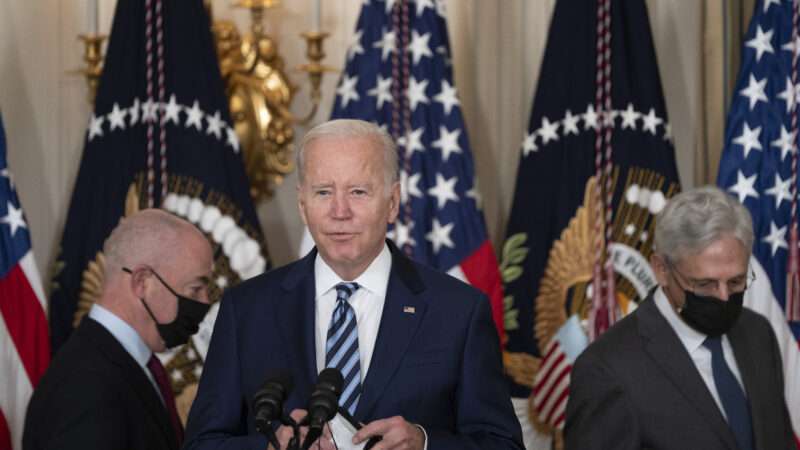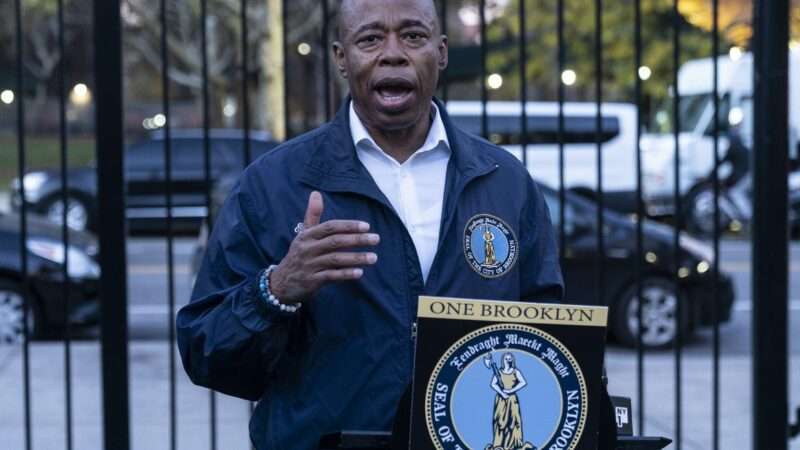On Wednesday, the Supreme Court will hear oral argument in Dobbs v. Jackson Women’s Health Organization, in which the justices will reconsider the extent to which the Constitution protects a woman’s right to terminate her pregnancy.
Because the law in question is incompatible with the “undue burden” standard as articulated in Casey and subsequent cases, much of the briefing focuses on whether Roe and Casey were correct as an original matter, and (if not) the extent to which principles of stare decisis counsel upholding, modifying, or overturning those decisions. I suspect such questions will dominate the oral argument on Wednesday.
Some Pro-Life advocates have more more ambitious aims. They argue not only that Roe was wrong as an original matter, but also that the Fourteenth Amendment, properly interpreted, protects unborn life and prohibits abortion. This is the argument made in this amicus brief filed in Dobbs on behalf of John Finnis and Robert George and this Finnis article in First Things. This was also an argument made by Texas in Roe, but not one that has ever attracted even a single justice’s vote at the Supreme Court.
Last month, I was asked to debate this question with Josh Hamer by the University of Chicago student chapter of the Federalist Society and UChicago Law Students for Life. It was a fun event in front of a packed house. The remainder of this post (after the break) summarizes my argument for why the Fourteenth Amendment does not prohibit abortion.
In order to argue that the 14th Amendment prohibits abortion, one needs to establish two separate propositions: 1) That the unborn are “persons” within the Fourteenth Amendment; and 2) That the failure of a state to prohibit abortion constitutes a denial of either Due Process or Equal Protection. Both are necessary to sustain the argument, but in my view, the Constitution’s text, structure and history do not support either.
Let us start with the text. The 14th Amendment extends Due Process and Equal Protection to all persons. Privileges and Immunities, on the other hand, are only extended to citizens, and only those “born or naturalized in the United States” are citizens. As most originalists believe it is the P-or-I clause that is the source of substantive rights under the 14th Amendment, an originalist could stop here and conclude that the 14th Amendment does not extend any substantive rights to the unborn.
Setting aside the P-or-I question does not help much, as there is little in text or history to suggest that the unborn are persons within the meaning of the Constitution. The term “person” is used throughout the Constitution, including elsewhere in the 14th Amendment, and regularly in ways that can (and have always) only applied to those already born, such as Section 2 of the 14th Amendment, which bases apportionment on “the whole number of persons,” and makes reference to an individual’s age, which has always been counted from birth, not conception.
Some counter that if “persons” is a capacious enough term to include corporations, then it can include the unborn as well. This counter fails on two fronts. First, corporations are not considered persons for all constitutional purposes, and second (as Ed Whelan notes here), the reason for sometimes considering corporations to be persons is because (as the Supreme Court has explained) corporations “are merely associations of individuals united for a special purpose.” Accordingly, where denying constitutional rights to a corporation would require denying rights to a collection of individuals, those rights are protected, but otherwise they are not (which is why, for instance, not all rights protected by the 14th Amendment apply to corporations).
Yet even if one rejects these concerns, and concludes that the unborn are persons for purposes of the the Due Process and Equal Protection clauses, this still does not establish that states have a constitutional obligation to prohibit abortion.
Let’s start with Due Process. There is zero evidence that this clause was ever understood to prohibit abortion, or any other private conduct. Unlike the 13th Amendment, the 14th Amendment only applies to state action (and, as the 13th Amendment shows, the authors of the Reconstruction Amendments knew how to draft amendments to reach private conduct). So privately performed abortions are not constitutional violations. Further, even if one sets aside the state action concern, and further assumes that the clause protects substantive rights, the Due Process Clause of the 5th Amendment was never interpreted or understood to impose any limitations on abortion within the District of Columbia or federal territories, even though all persons were subject to Due Process protections as against the federal government since the ratification of the Fifth Amendment.
If Due Process is a non-starter, is there are an argument that failing to prohibit abortion violates Equal Protection? The argument here would be that protecting born persons from private violence while failing to protect unborn persons violates each state’s obligation to ensure equal protection of the laws. This argument seems more plausible on its face. It is not subject to the state action objection, nor does the federal government’s failure to limit abortion prior to the 14th Amendment’s ratification matter much as the 5th Amendment contains no Equal Protection clause. But while the argument here is more plausible, it still fails.
Even assuming that the unborn are persons within the Equal Proteciton clause, even as they are not persons for other parts of the 14th Amendment, there is a conspicuous problem that few states have ever treated abortion as fully equivalent to intentional homicide. Finnis and George note in their brief that the history of state restrictions on abolition in the 19th century is significantly greater than Justice Blackmun suggested in Roe (and that point is well taken). Yet even under their account, feticide was often not treated as the equivalent of intentional homicide (particularly prior to quickening, which was often treated as a misdemeanor, if prohibited at all). That is, states rarely adopted laws to protect the unborn equally with other persons.
Further, while many states considered and revised their abortion laws in the middle of the 19th century, both before and after the drafting and ratification of the 14th Amendment, there is no evidence that any of these debates or legal enactments were influenced in the slightest by a belief that the 14th Amendment (or principles of equal protection more generally) required treating feticide and homicide as equivalent actions, and they cite no evidence that any political figure or commentator thought that state failure to prohibit abortion in the late 19th century constituted a violation of the 14th Amendment. The propriety of abortion was a highly salient policy question in the post-bellum period, and yet no one sought to connect this question to the 14th Amendment, or to argue that the failure to treat feticide as equivalent to homicide was a constitutional violation. The absence of a single dog barking, in any state, is more than conspicuous.
The lack of any 19th century support for this reading of the Equal Protection clause is even more conspicuous because such a reading would greatly distort our constitutional structure. Most questions of life and death, and the extent to which actions that harm or kill others should be criminalized, are questions left to the states. Most states at this point have adopted the Uniform Definition of Death Act, but this is a choice the Constitution vests with the states, as is the choice to decide waht sorts of acts constituted permissible killing (such as self-defense) and what acts do not. Within our constitutional system, different states can (and always have) defined the line between life and death, what actions constitute homicide, when killing may (or may not) be permissible, and so on. The liberty to make these choices in line with state preferences was not obviated by enactment of the 14th Amendment. Individual state answers to these questions have often converged, but due to the choices of policymakers in each state, and not federal dictate.
Note that the Finnis-George argument is not simply that section 5 of the 14th Amendment gives Congress the power to limit or prohibit abortion (a question I addressed here). Rather, their argument is that the 14th Amendment itself requires states to prohibit abortion — to provide the unborn at all stages of development “equal protection of the laws.” This argument not only lacks grounding in text, history or structure — for the reasons I have tried to sketch briefly above — it would also require a dramatic degree of federal judicial superintendence of state law and policy making to enforce. As they note, under their argument, “state homicide laws would need to forbid elective abortion,” and this requirement would need to be enforced by courts in some fashion. Finnis and George suggest this could be done easily with little disruption, but their cursory argument on this score actually demonstrates the opposite, as even the “customary remedies” they propose require courts to rewrite state laws and mandate their enforcement.
In Federalist No. 45, James Madison wrote that the reserved powers of the states “extend to all objects which, in the ordinary course of affairs, concern the lives, liberties, and proprieties of the people, and the internal order, improvement, and prosperity of the State.” However much the ratification of the 14th Amendment curtailed these powers and rebalanced our federal system, it did not make abortion unconstitutional nor did it require states to treat all abortion as homicide. No justice has (as yet) ever held otherwise, and no justice who considers himself or herself bound by the original public meaning of the 14th Amendment ever should.
The post Why the 14th Amendment Does Not Prohibit Abortion appeared first on Reason.com.
from Latest – Reason.com https://ift.tt/3D3xJze
via IFTTT








